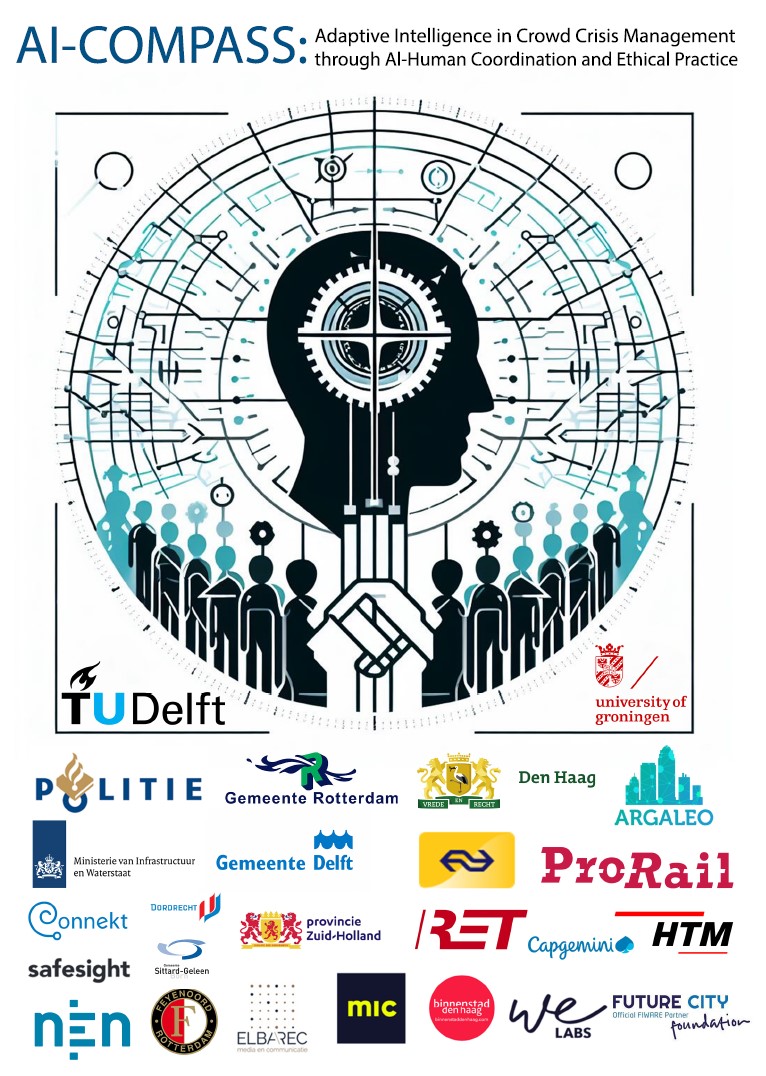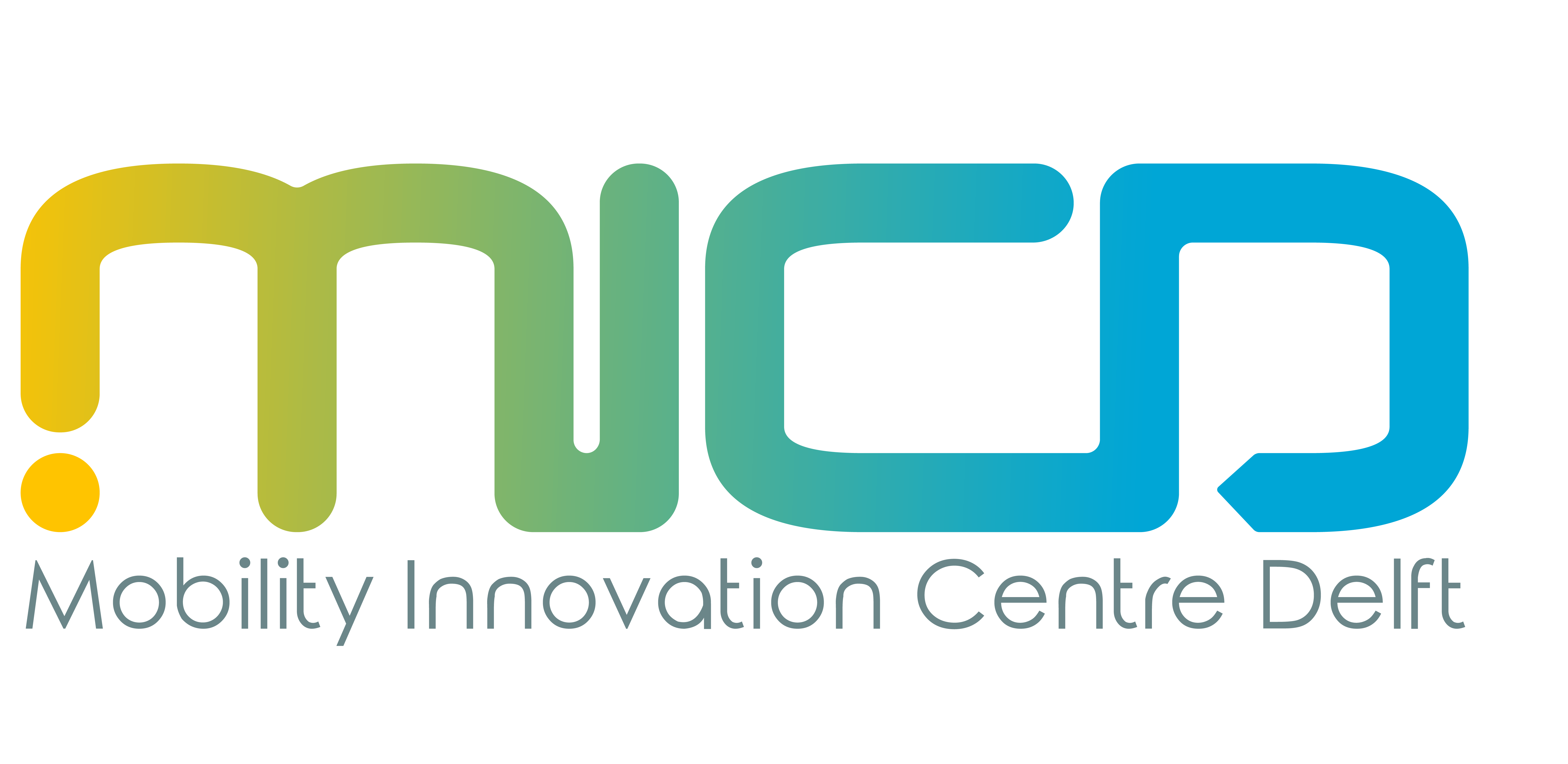A major challenge in crises is the combination of complexity, time pressure and moral decisions. AI has the potential to support crowd crises decisions, yet the increasing use of AI has led to a debate about the legal and ethical implications. To address these challenges, the AI-COMPASS consortium, led by TU Delft, develops real-time decision support systems, considering context, behaviour, and values. The project is financed by the Collaboration between Humans and (semi-)Autonomous systems programme of NWO.
Our cities are growing and so are the risks for crowd crises. Crowd crises jeopardize societal safety and security, putting lives at risk and causing enormous economic and societal damage. By working on two pilots in The Hague and Rotterdam, that address demonstrations, events, or busy beach days, the project AI-COMPASS connects insights on the interaction of people and AI with tool development.
Improving public safety
Being able to forecast crowdedness and the risks associated has been a major scientific and societal challenge.
Sascha Hoogendoorn-Lanser, MICD director: “In the past few years, we have achieved excellent results by combining state of the art technologies. During crowded days at the boulevard of Scheveningen in The Hague, we have conducted research on crowd management, making use of a digital twin. Our experts on data analysis were able to predict crowds way in advance, which proved valuable to the municipality and the police. After years of preparation, I am very pleased that we could enthuse so many partners to join us in this project. This proves that our research is relevant to ensure public safety by orchestrating the right measures in a solid, ethical and explainable human-AI connection.”
“This project, a fusion of our expertise in crowd dynamics, cutting-edge sensor technology, and advanced AI, aims to address this challenge head-on. Central to this exciting initiative is the development of innovative digital tools to optimise people’s safety. The tools will support planning and management of a wide range of events, planned and unplanned, while safeguarding privacy and avoiding bias”, says Professor Serge Hoogendoorn.
Professor Tina Comes of TU Delft: “Crises change human behaviour, decision making – and also the way humans work with AI. I am thrilled that in this project we make a step ahead in truly human-centred AI to improve public safety. I look forward to working with an excellent consortium with so many committed stakeholders and partners”.
More information
Read more on this project on our project page.
The consortium
Partners in the AI-COMPASS project are: TU Delft, University of Groningen, the Netherlands Police, Multi Intelligence Center, Municipality Rotterdam, Municipality The Hague, Municipality Delft, Ministry of infrastructure and water management, Argaleo, ELBA\REC, WE LABS, Safesight, Connekt, NS Stations, ProRail, Province South-Holland, Municipality Dordrecht, Stadion Feijenoord, Bureau Binnenstad Den Haag, HTM Personenvervoer, Municipality of Sittard Geleen, Future City Foundation, NEN, RET, Capgemini. They will receive 1.7 million euros from the NWO Collaboration between Humans and (semi-)Autonomous systems programme.

